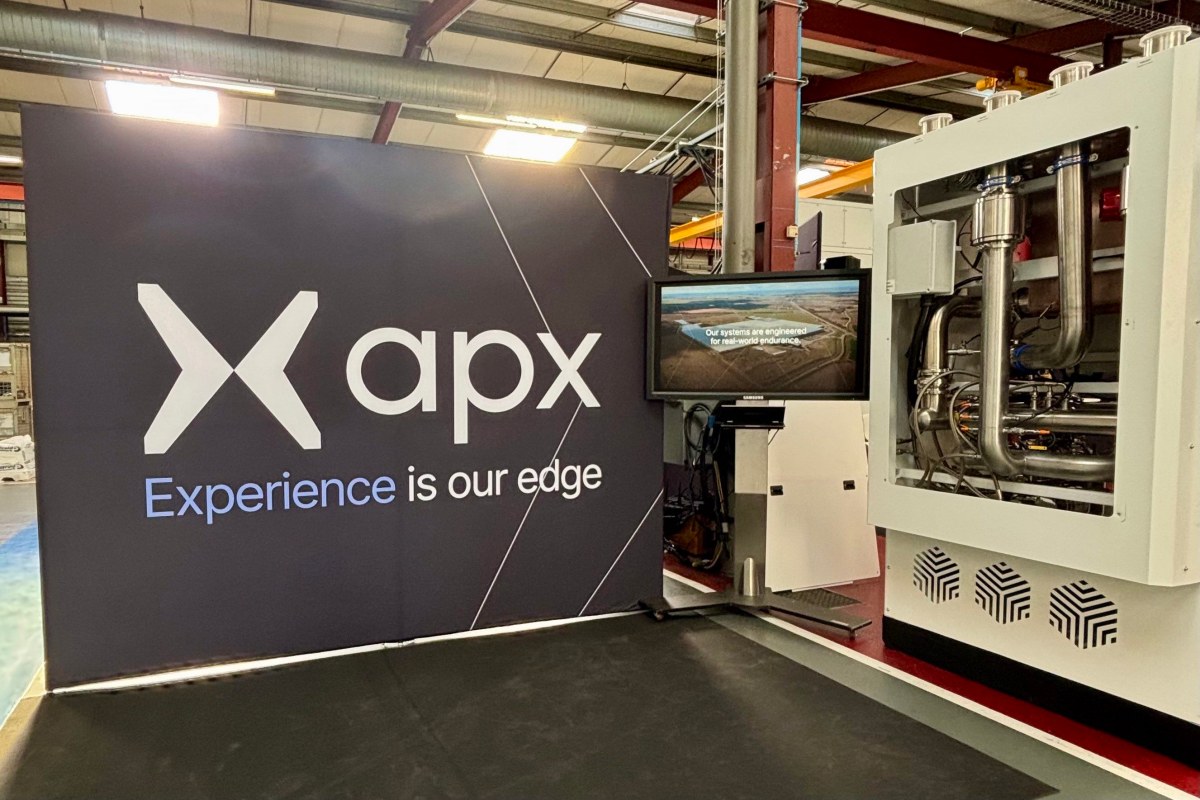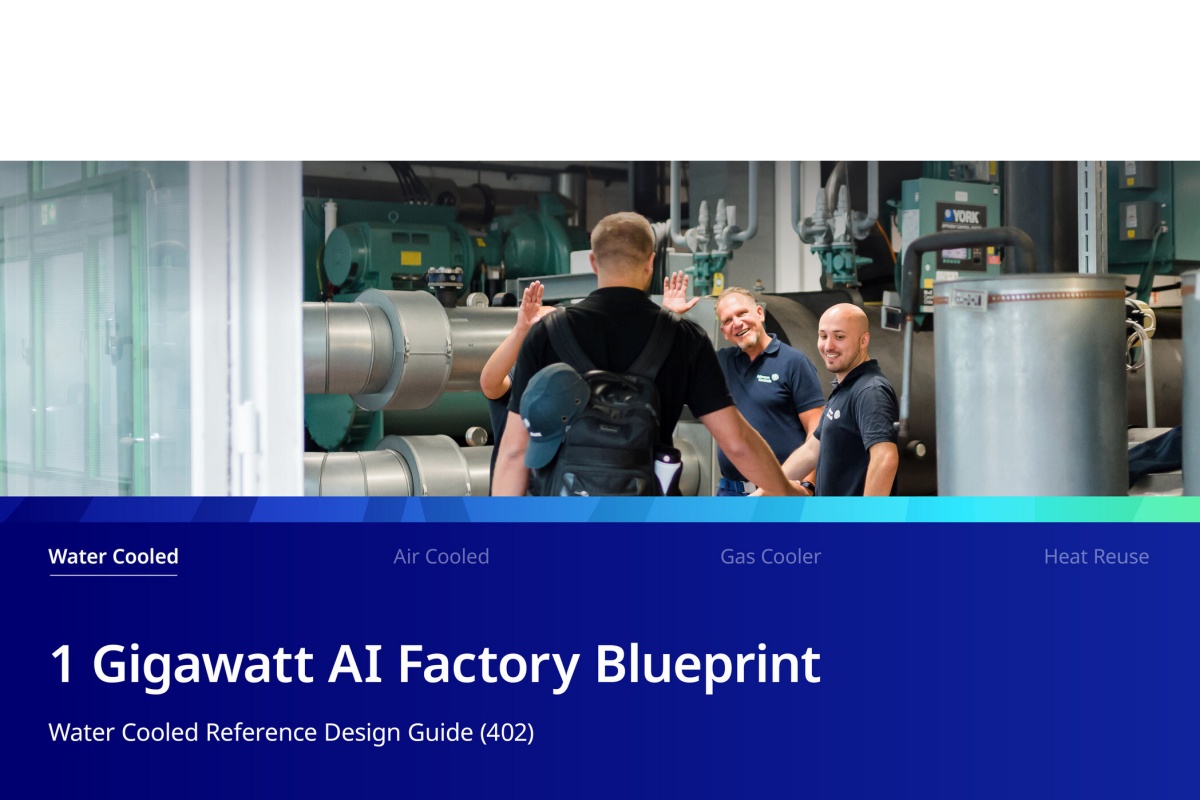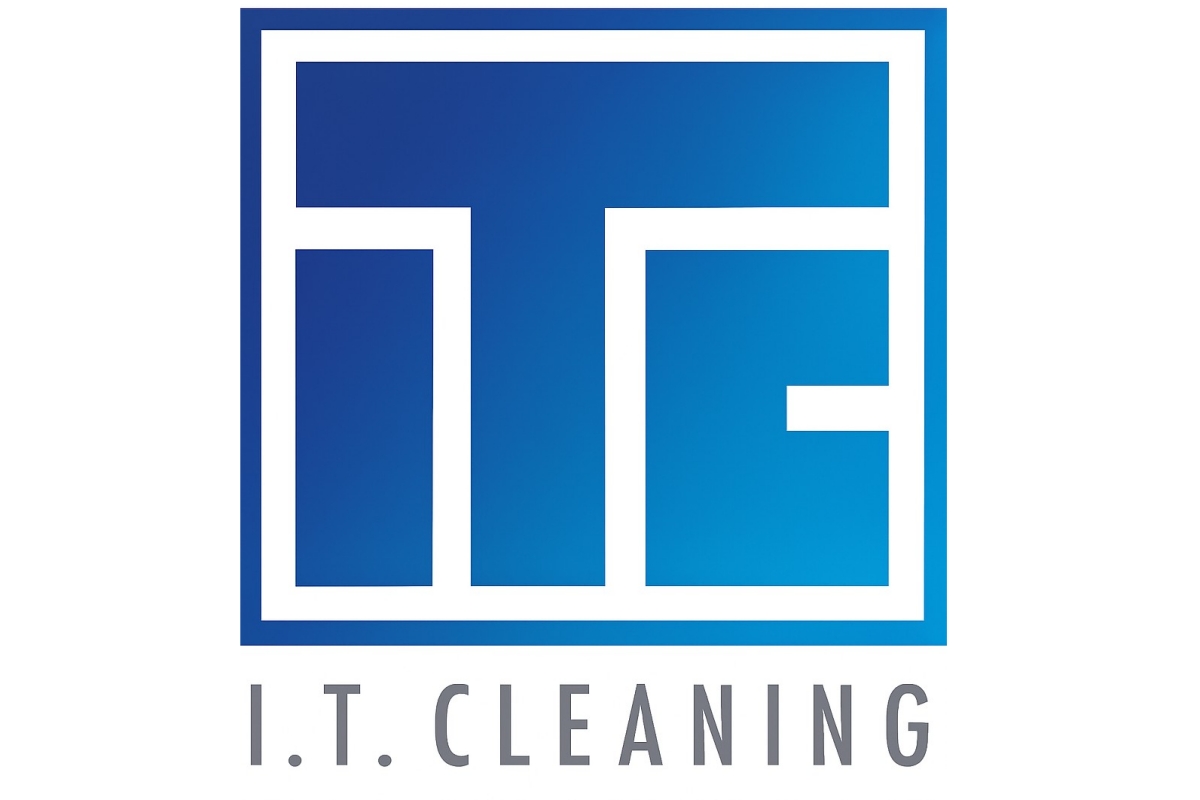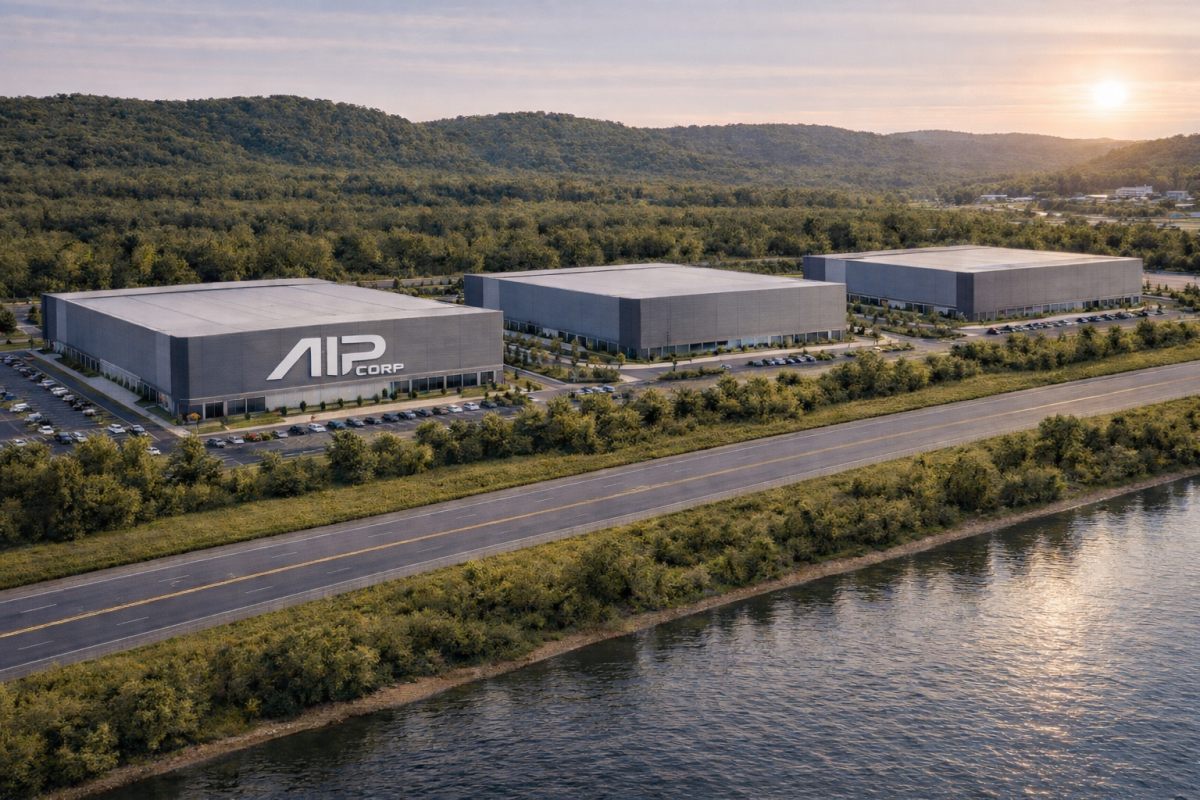9 February 2026
Carrier launches CRAH for data centres
Carrier launches CRAH for data centres
9 February 2026
Pulsant opens high-density UK facility outside London
Pulsant opens high-density UK facility outside London
6 February 2026
North East England data centre hub launched
North East England data centre hub launched
6 February 2026
Aggreko: Power supply will decide AI winners and losers
Aggreko: Power supply will decide AI winners and losers
6 February 2026
DataVita secures £44.9m contract with Glasgow City Council
DataVita secures £44.9m contract with Glasgow City Council
Latest News
Data Centre Business News and Industry Trends
Data Centre Regulations & UK Compliance Updates
Insights into Data Centre Investment & Market Growth
News
UK parliamentarians launch Data Centres APPG
MPs and peers have launched a new All-Party Parliamentary Group (APPG) focused on data centres, examining the sector’s role in economic growth, digital infrastructure resilience, and net zero targets.
The cross-party group is chaired by Chris Curtis MP, Labour MP for Milton Keynes North and Chair of the Labour Growth Group. Other officers include:
• Lewis Cocking MP, Conservative MP for Broxbourne (as co-chair)• Alison Griffiths MP, Conservative MP for Bognor Regis and Littlehampton• Lord Philip Hunt of Kings Heath OBE, former Minister of State for Energy Security and Net Zero
The APPG aims to improve parliamentary understanding of data centre development across the UK, review challenges and opportunities facing the sector, and produce evidence-based policy recommendations.
The group will examine areas including infrastructure delivery, planning considerations, and energy demand linked to sector growth.
The APPG has opened a formal call for evidence, inviting contributions from across the digital infrastructure ecosystem. Submissions will help shape the group’s Terms of Reference and define its areas of focus for 2026.
Stakeholders invited to contribute include data centre operators and developers, energy suppliers, network operators, water providers, investors, consultancy organisations, local authorities, technology providers, trade associations, environmental groups, and academic institutions.
Consultation launched to gather industry evidence
Chris Curtis MP, Chair of the Data Centres APPG, notes, “Data centres are a vital part of the UK’s digital economy, and it is essential that we remain an attractive destination for the investment that drives growth and creates high-skilled jobs.
"As Chair of the APPG, I want to ensure Parliament has the evidence and understanding it needs to shape a balanced approach: one that supports development, delivers real economic benefits, and works for local communities, while recognising wider considerations.
"Getting this right will be critical to securing the UK’s long-term digital future.”
Lewis Cocking MP, Co-Chair of the Data Centres APPG, adds, “Data centre development must work for the communities that host them. Google's £1 billion investment at Waltham Cross is a clear sign of Broxbourne's growing importance as a hub for technology and innovation, and we must ensure this growth delivers genuine benefits for local people.
"This new APPG will focus on ensuring that local voices are heard in planning processes, that developments deliver tangible benefits (such as local jobs and waste heat utilisation), and that the highest environmental standards are met.
"Local residents need to have a real say in projects like these. We'll work to ensure developments like Google's enhance Broxbourne and other local areas while meeting our environmental commitments.”
Lord Hunt of Kings Heath OBE, Officer of the Data Centres APPG, says, “As a former Minister of State for Energy Security and Net Zero, I've seen firsthand how critical it is to align infrastructure growth with our climate commitments.
"Data centres are major energy users, but they're also driving innovation in renewable energy procurement and efficiency.
"This APPG will focus on ensuring their growth supports our net zero ambitions, exploring how these facilities can contribute to clean energy infrastructure, utilise waste heat, and support grid modernisation.
"With the right policy framework, we can build the digital capacity our economy needs while advancing our environmental goals. Data centres shouldn't be seen as a challenge to net zero, but as part of the solution.”
Joe Peck - 5 February 2026
Data Centre Infrastructure News & Trends
Innovations in Data Center Power and Cooling Solutions
Liquid Cooling Technologies Driving Data Centre Efficiency
Products
PFX highlights its SOLUTHERM cooling fluids
PFX Group, a Canadian manufacturer of automotive and industrial fluids, has showcased its SOLUTHERM heat transfer fluid range at the 2026 AHR Expo in Las Vegas, USA.
The company presented its thermal management fluids at the Recochem booth during the event, which ran from 2 to 4 February. The SOLUTHERM range is designed to support HVAC system performance, including traditional heating and cooling loops and liquid cooling applications in data centres.
The company states that increasing power densities, changing regulatory requirements, and evolving system materials are driving greater demand for effective thermal management. This is particularly relevant in data centres, where continuous operation and high-performance computing environments require reliable temperature control to support equipment performance and operational continuity.
The SOLUTHERM range includes glycol-based heat transfer fluids designed to support system efficiency, temperature stability, and corrosion protection. Some formulations are developed to support environmental targets, including biodegradable options and fluids aligned with LEED building requirements.
Jerome Dujoux, Vice President of Branding and Innovation at PFX Group, says, “HVAC and data centre cooling are no longer separate conversations.
"As computing power increases and buildings become more energy intensive, thermal management is becoming a connective tissue between digital infrastructure and the built environment. That’s the shift SOLUTHERM is designed for.”
Thermal fluids for HVAC and data centre cooling
Among the products highlighted at the exhibition were SOLUTHERM PG HD and EG HD heat transfer fluids, designed for HVAC applications in facilities including hospitals, universities, and other critical infrastructure environments.
The company also presented SOLUTHERM direct liquid cooling fluids, developed for servers and high-performance computing environments. These fluids are designed to operate across a wide temperature range, supporting data centre cooling requirements associated with increasing power density.
Additional products included SOLUTHERM PG HD LEED heat transfer fluids, which use bio-based propylene glycol and meet ASTM D8039 corrosion testing standards, and SOLUTHERM PG AL Safe heat transfer fluids, developed for systems containing aluminium components such as boilers, water heaters, and heat exchangers.
Tom Corrigan, Director of Research and Development at PFX Group, notes, “Heat transfer fluids are often treated as a commodity when, in reality, they influence energy efficiency, equipment lifespan, and system reliability more than most people realise.
"We see thermal management as a strategic decision and that’s why SOLUTHERM is engineered for specific applications and backed with ongoing support.”
Joe Peck - 5 February 2026
Data Centre Business News and Industry Trends
Insights into Data Centre Investment & Market Growth
News
EUDCA publishes its new 2026 report
The European Data Centre Association (EUDCA), the representative body of the European data centre community, has announced the publication of its 2026 State of European Data Centres report.
Building upon regional benchmarks established in last year’s report, the new data reveals a European market that has moved beyond the era of hub-centric development and is evolving into a distributed, energy-integrated, and AI-driven digital ecosystem.
Europe’s data centre sector is shown to be entering a period of exceptional expansion, structural diversification, and rapid technological transformation, driven by AI hyper-expansion. However, its ability to fully exploit potential growth is threatened by energy availability and access.
The new EUDCA report finds European market growth not only within traditional centres - such as the Frankfurt, London, Amsterdam, Paris, and Dublin (FLAP-D) - but also rapidly decentralising across Southern Europe, the Nordics, Central and Eastern Europe (CEE), and selected Tier2 metros.
Moving from cloud-led growth to AI demand, data centres are now recognised as critical infrastructure underpinning Europe’s competitiveness and security.
Growth and investment in Europe’s data centres
Europe’s IT power capacity grew from 10,539 MW (2023) to 14,784 MW (2025), exceeding forecasts. Furthermore, €176 billion (£151.6 billion) in cumulative investment is expected from 2026–2031.
Within this growth and investment, scale colocation campuses and AI-optimised facilities dominate new builds. A CAGR exceeding 25% through to 2031 is expected for scale colocation, reflecting rising demand for high-density cloud and AI clusters.
Traditional retail and wholesale sites continue to expand, but their relative share of new capacity is declining as customers increasingly require multi-building, AI-ready environments with long-term scalability.
Hyperscale data centre expansion is accelerating into regions with improving access to renewable energy and favourable operating conditions, as training workloads tend to favour regions with abundant power availability such as the Nordics and parts of Southern Europe.
A notable driver of growth is the rise of neocloud, namely providers of ultra-high-density compute with rapid deployment capability and large power tranches aligned with the needs of AI developers, global model providers, and emerging cloud-adjacent platforms.
Constraints and socioeconomic impact
A significant factor affecting the industry is energy availability and access. Power availability is reported as the top challenge for more than two thirds (67%) of operators. Grid congestion and long connection timelines in many geographies are slowing deployment.
Within these developments, AI clusters are pushing extreme rack densities beyond 100kW, calling for changes in data centre design, deployment, and operation, as well as driving a rapid shift towards liquid and hybrid cooling architectures.
The European data centre industry continues to make a significant contribution to the economy and society.
The report finds a €53 billion (£45.6 billion) GDP contribution in 2025, rising to an expected €137.5 billion (£118.4 billion) by 2031, with more than 300,000 direct, high-skilled jobs supported across the ecosystem.
The facilities and campuses also bring local benefits, such as supporting district heating, providing energy grid flexibility services, renewable power purchase agreements (PPA) that support renewable energy development, and community infrastructure.
Sustainability progress and regulatory alignment
The industry’s rapid growth is firmly aligned with climate and regulatory expectations.
The continued application of the Energy Efficiency Directive (EED) marks a new era of harmonised reporting and transparency for the industry. The vast majority (90%) of energy consumed by European data centres is now generated from renewable energy sources.
At the same time, there has been strong progress on water usage effectiveness (WUE), renewable procurement, and heat reuse integration, addressing many of the concerns of the citizenry with regard to data centre facilities.
There are outstanding examples of biodiversity, heat reuse, and community benefit projects across Europe.
Global leadership and the next phase
EUDCA Secretary General Michael Winterson comments, “The exceptional growth of Europe’s data centre market is welcome news at a time when international volatility has focused many geographies on digital sovereignty and security.
“Once the issues of power availability and access are addressed, Europe has the opportunity to lead globally in AI-ready infrastructure, while maintaining the highest standards of sustainability and responsible stewardship.”
The 2026 State of European Data Centres report clearly demonstrates the need for industry, policymakers, and partners to come together on bold steps to accelerate grid investment and permitting reform. This will require deeper and improved cross-border coordination to achieve greater collaboration on energy system integration.
The report states that if these challenges are met, Europe will be positioned not only to accommodate growth in cloud and AI infrastructure, but to lead in the development of a secure, sustainable, and strategically independent digital economy.
For more from the EUDCA, click here.
Joe Peck - 4 February 2026
Data Centre Infrastructure News & Trends
Innovations in Data Center Power and Cooling Solutions
News
LFB data centre division rebrands as Apx
The data centre division of LFB Group, a European HVAC and refrigeration company, has rebranded as Apx, reflecting a shift in focus towards increasing performance, project complexity, and delivery requirements across the sector.
The rebrand follows more than 20 years supporting server room and data centre operations across Europe. The company states the new identity reflects the growing role of cooling systems in high-density and AI-driven data centre environments.
Apx has been formed from LFB Group’s dedicated data centre team, previously operating under the Lennox name. The business intends to focus on closer collaboration across design, development, and project delivery, alongside increased emphasis on engineering validation and pre-commissioning processes.
Expansion of production and validation capability
The company has expanded its facilities in Lyon, France, to support increased engineering, manufacturing, and testing capabilities.
Additional sites in Genas, Mions, Longvic, and Burgos form part of a multi-site production and validation network, supporting precision manufacturing, automated testing, and climatic performance validation.
Matt Evans, CEO at Apx Data Centre Solutions, says, “The industry’s dams have well and truly burst, with billion dollar projects and developments being announced almost every week. Keeping on top of this demand, though, has never been more important.
“Today, collaboration is everything. Operators are searching for partners who can offer them both flexibility and agility, enabling them to build for the future while reacting quickly to what's happening right now.
"That's where co-engineering becomes critical: by working with designers, contractors, and operators from day one, we can shape decisions together, anticipate challenges, and engineer solutions before they become problems.
“While no-one can predict what's around the corner, one thing is clear: performance has to be proven earlier. It's been one of our grounding principles since the start - the idea that pre-commissioning must be core to every product's DNA.
"By front-loading engineering, validating performance up-front and removing uncertainty before components reach sites, we give operators the head space - and time - to meet the demand.
“The direction of travel is clear: scale, capacity, and density. And I couldn't be more excited about where we've taken this business. The new Apx name marks our next chapter and it's one we're genuinely proud to be part of.”
Broader expansion
The company has recently introduced three products aimed at data centre cooling applications, including a computer room air handler, fan wall unit, and coolant distribution unit (CDU).
Apx operates within the wider LFB Group, which also includes HVAC manufacturer Redge and refrigeration specialist Friga-Bohn. The group has more than 60 years of experience in refrigeration and mechanical engineering.
The company is also expanding its workforce, with recruitment planned across project management, operations, controls, commissioning, and sales support roles in France, Germany, and the Netherlands. Apx expects its dedicated data centre team to grow to approximately 50 employees by 2027.
For more from LFB Group, click here.
Joe Peck - 4 February 2026
Data Centre Build News & Insights
Data Centre Infrastructure News & Trends
Exploring Modern Data Centre Design
Innovations in Data Center Power and Cooling Solutions
Liquid Cooling Technologies Driving Data Centre Efficiency
Johnson Controls launches cooling reference design guides
Johnson Controls, a global provider of smart building technologies, has announced the launch of its Reference Design Guide Series for one-gigawatt AI data centres.
Each guide in the series maps the full thermal chain, offering cooling architectures tailored to diverse compute densities, geographies, and elevations.
The series begins with a blueprint for water-cooled chiller plants, with future guides to address air-cooled and absorption chiller solutions.
As AI transforms industries, the scale and complexity of data centre infrastructure is rapidly evolving. The ability to efficiently manage thermal loads at gigawatt scale is now a critical enabler for AI innovation, and the industry faces mounting pressure to deliver facilities that are not only high-performing, but also sustainable and future-ready.
Johnson Controls says its Reference Design Guide Series responds to this challenge by outlining how to achieve "industry-leading" energy and water efficiency (PUE and WUE) while maintaining flexibility to scale across diverse climates and operational requirements.
The guide outlines a complete thermal architecture supporting both liquid- and air-cooled IT loads through integrated computer room air handlers (CRAHs), fan coil walls, coolant distribution units (CDUs), and high-efficiency YORK centrifugal chillers.
It provides sizing guidance for 220MW compute quadrants and defines temperature and operating conditions across all major facility loops, including Technology Cooling System (TCS) loops supporting next-generation GPUs.
Stated key outcomes
• Zero water consumption — A "fully water-free" heat rejection process using dry coolers, "reducing operational costs and advancing sustainability objectives."
• Future-ready thermal flexibility — High-temperature TCS loop readiness aims to ensure compatibility with forthcoming GPU architectures.
• Optimised high-density AI performance — Alignment with NVIDIA DSX reference architecture enables scalable deployment of 1-GW-class AI Factories.
• Energy-efficient operation — Elevated condenser water temperatures, bifurcated loops, and YORK high-lift chillers aim to deliver good PUE and improved annualised efficiency.
Austin Domenici, Vice President & General Manager at Johnson Controls Global Data Center Solutions, says, "AI Factories are production facilities - the places where intelligence is manufactured at an industrial scale.
"By supporting the NVIDIA DSX reference architecture and improving water and energy efficiency in the cooling process while maintaining high temperature loop compatibility, our Reference Design Guide equips customers to deploy gigawatt-scale AI infrastructure that is scalable, repeatable, resilient, and sustainable."
For more from Johnson Controls, click here.
Joe Peck - 3 February 2026
Data Centre Infrastructure News & Trends
Enterprise Network Infrastructure: Design, Performance & Security
News
Keysight, Point2 collaborate to advance AI interconnects
Keysight Technologies, a manufacturer of electronic test and measurement equipment and software, and interconnects provider Point2 Technology have announced a collaboration to validate next-generation, multi-terabit interconnects intended to address scale-up connectivity constraints in AI and machine learning data centres.
The companies are working together to test Point2’s e-Tube interconnect technology using Keysight’s high-speed digital test and measurement platforms. The validation work is focused on meeting the performance and reliability requirements associated with hyperscale AI infrastructure.
As AI workloads increase bandwidth demand, hyperscale operators face challenges when scaling xPU clusters.
Point2’s e-Tube technology uses RF data transmission over plastic waveguide and is intended to extend reach beyond traditional copper-based interconnects while reducing power consumption and latency.
The approach is positioned as an alternative to conventional copper connections within high-density AI systems.
Validating multi-terabit performance
Keysight is providing validation and characterisation support to assess whether the interconnect technology meets hyperscaler requirements for reliability and signal integrity.
The collaboration also enables early research and development work on emerging 3.2T interfaces, supported by high-speed electrical signal generation and advanced real-time and sampling analysis.
The testing environment supports the generation and analysis of high-baud-rate PAM4 signals required for terabit-scale data transmission within AI systems.
Sean Park, CEO at Point2 Technology, says, “A strategic partnership with Keysight gives us access to world-class engineering tools and support, allowing us to accelerate our e-Tube product development cycles.
"The confidence that comes from validating our e-Tube platform using Keysight’s rigorous test equipment is invaluable as we engage with leading hyperscaler customers globally.”
Dr Joachim Peerlings, Vice President of Network and Data Centre Solutions at Keysight, adds, “AI scale-up architectures demand disruptive innovation in physical interconnects. Keysight provides the industry’s trusted source of measurement truth, helping innovative partners like Point2 validate technologies quickly and confidently at multi-terabit speeds to achieve their next breakthroughs.”
For more from Keysight, click here.
Joe Peck - 2 February 2026
Commercial Real Estate: Property Developments, Trends & Infrastructure
Data Centre Business News and Industry Trends
Insights into Data Centre Investment & Market Growth
News
nLighten expands footprint through Paris site acquisition
nLighten, a European data centre operator, has announced the acquisition of a data centre in Émerainville, Paris from oXya, a provider of SAP cloud services and managed IT infrastructure. The facility becomes nLighten's eighth site in France and adds to its portfolio of over 30 data centres in seven markets.
Strategically located in Paris's eastern data centre cluster, approximately one kilometre from nLighten's existing PAR1 facility, the site will continue serving anchor customer oXya under a long-term master services agreement, while additional capacity will be made available to enterprise customers via channel partners.
The facility is designed to support high-density and AI-ready configurations, providing scalable infrastructure that evolves with customer requirements.
nLighten says its approach emphasises delivering sustainable, interconnected infrastructure tailored to enterprise needs, with "seamless connectivity between [its] sites."
Expanding digital infrastructure
Harro Beusker, CEO and co-founder of nLighten, comments, "The acquisition of this Paris data centre represents a significant expansion of our French footprint and strengthens our position in one of Europe's most dynamic digital infrastructure markets.
"Paris is a critical hub for regional connectivity and this facility enables us to deliver enhanced capacity and resilience to our enterprise customers. The proximity to our existing Paris sites creates operational synergies while also allowing us to support dual-site deployments.
"This acquisition exemplifies our strategy of building smart, sustainable infrastructure that scales with customer needs and contributes to the digital transformation of European businesses."
Anwar Saliba, Managing Director at nLighten France, adds, “This acquisition fully aligns with our ambition to build a distributed, locally operated digital infrastructure across France.
"By adding capacity in the Paris region through three interconnected sites, we provide our customers with the conditions needed to deploy more resilient architectures, better secure their data, and meet growing requirements in terms of performance, service continuity, and digital sovereignty."
Christophe Bronner, Group Chief Financial Officer at oXya, states, "We are pleased to see this data centre continue its evolution thanks to the partnership with nLighten.
"This transition allows oXya to focus on its core business of delivering managed cloud services and consulting to our customers, while ensuring continuity and enhanced capabilities for our infrastructure needs.
"We believe nLighten's expertise and commitment to sustainable operations will benefit both our organisation and the broader customer community.”
For more from nLighten, click here.
Joe Peck - 2 February 2026
Commercial Real Estate: Property Developments, Trends & Infrastructure
Data Centre Build News & Insights
Data Centre Business News and Industry Trends
Sustainable Infrastructure: Building Resilient, Low-Carbon Projects
BCS Consultancy launches Sustainable Development Service
BCS Consultancy, a global data centre consultancy, has launched a new Sustainable Development Service and appointed James Rogers Jones as Head of Sustainable Development.
The new service formalises sustainability as a core element of BCS Consultancy’s project management, cost management, commercial advisory, and technical delivery work, rather than a standalone offering.
The move reflects increasing client demand for advice that balances commercial delivery with environmental impact, community expectations, and long-term operational resilience.
James joins BCS Consultancy with experience supporting major data centre operators, including Digital Realty, Google, GreenScale, and AtlasEdge. His work has focused on sustainability strategy, regulatory compliance, and operational performance across complex data centre portfolios.
James comments, “Data centres underpin our modern economy and are one of the most impactful industries in the world. These assets can deliver enormous value to both clients and the communities they serve.
"Sustainability should no longer be framed primarily around ESG-signalling or long-term carbon targets; instead, it is increasingly becoming linked to energy security, price stability, and operational resilience.”
Responding to community and planning pressures
The Sustainable Development Service will support clients with long-term decision-making, including data centre roadmaps, portfolio strategy, sustainability frameworks, and policy advisory.
It is also intended to address growing development pressures, as community opposition and project cancellations increase across several data centre markets.
BCS Consultancy points to findings from its forthcoming 2026 Data Centre Trends Report, which indicate that communities are seeking more than renewable energy commitments when considering data centre developments.
Concerns increasingly relate to water usage, local electricity pricing, and wider quality of life impacts. The consultancy states that operators must demonstrate their role as responsible local stakeholders alongside meeting environmental targets.
The launch of the service forms part of BCS Consultancy’s wider approach to supporting clients through continued growth in global digital infrastructure and increased demand driven by AI workloads.
The consultancy positions sustainability as a contributor to long-term value for both clients and host communities.
Chris Coward, Chief Operating Officer at BCS Consultancy, says, “Our clients are facing increasingly complex challenges from power constraints and planning risk to community scrutiny and long-term resilience. They need a simpler way to achieve their sustainability goals with project managers, cost managers, and technical experts who understand sustainability and can deliver outcomes as part of their day job.
“The launch of our Sustainability Service is about delivering better outcomes and aligns with how our clients expect us to operate. James brings both credibility and clarity of thinking, and his appointment strengthens our ability to support responsible, long-term decision-making across the entire lifecycle.”
For more from BCS Consultancy, click here.
Joe Peck - 2 February 2026
Data Centre Architecture Insights & Best Practices
Data Centre Build News & Insights
Sponsored
Expert cleaning for critical environments
IT Cleaning is the UK’s trusted authority in specialist IT and technical cleaning to ISO 14644-1 2022 Class 8, delivering expert services where precision is critical and failure is not an option.
From data centres and data halls to server rooms and comms rooms, the company protects vital infrastructure with meticulous, industry-approved cleaning solutions.
Every service is carried out by highly trained technicians using advanced anti-static methods, designed to safeguard sensitive equipment and reduce operational risk.
With minimal disruption and maximum attention to detail, IT Cleaning ensures technology environments remain clean, compliant, and performance-ready.
Operating nationwide, the company cleans for organisations that demand absolute reliability, strict compliance, and exceptional standards. Its reputation is built on technical expertise, consistent delivery, and a no-compromise approach to quality.
For businesses that depend on uninterrupted IT performance, IT Cleaning is the specialist cleaning partner of choice.
Click here to visit the company's website and find out more.
Joe Peck - 30 January 2026
Data Centre Build News & Insights
Data Centre Infrastructure News & Trends
Data Centre Projects: Infrastructure Builds, Innovations & Updates
Innovations in Data Center Power and Cooling Solutions
AIP partners with Caterpillar for 2GW AI power
Developer of integrated AI power and compute infrastructure platforms American Intelligence & Power Corporation (AIP), construction equipment manufacturer Caterpillar, and equipment deliverer Boyd CAT have formed a strategic partnership to support the development of AIP’s Monarch Compute Campus in West Virginia, USA.
The agreement includes a purchase arrangement for dedicated onsite power infrastructure, intended to support hyperscale and enterprise data centre requirements. The initial phase will provide up to 2GW of generation capacity, with power delivery beginning in 2026 and full capacity online during 2027.
Under the agreement, AIP has ordered 2GW of fast-response natural gas generator sets to support the first phase of Monarch. Deliveries are scheduled between September 2026 and August 2027.
The generation systems will be supported by battery energy storage systems (BESS), intended to manage rapid load changes associated with AI workloads. The equipment is expected to be commissioned within months of delivery, supporting phased deployment at the site. Further expansion is planned in later phases.
Power platform for AI data centre workloads
The Monarch site is designed as a behind-the-meter power platform, with onsite generation intended to operate independently of incremental utility transmission or distribution infrastructure.
According to the companies, the platform is intended to support rapid load variability, high availability, and predictable long-term operation for AI-driven data centre environments.
Daniel J Shapiro, CEO of AIP, comments, “This strategic alliance reflects a shared commitment to delivering reliable, scalable, and capital-efficient power solutions on an accelerated timeline.
"Our design is purpose-built for AI data centre operations, combining fast-response natural gas generation with battery energy storage to manage rapid load variability and deliver consistent power quality at scale.
"By leveraging our existing microgrid designation from the State of West Virginia, we can bring new capacity online quickly while supporting long-term grid reliability and resilience, without increasing rates or adding costs for existing utility customers.”
Melissa Busen, Senior Vice President of Electric Power at Caterpillar, adds, “This collaboration reflects Caterpillar and our dealers’ continued focus on supporting customers that require primary, continuous-duty power at scale through our broad energy portfolio.
"Projects like Monarch demonstrate how Caterpillar’s natural gas generation platforms are being deployed as core infrastructure for data centres and other power intensive applications where reliability, speed of deployment, and lifecycle performance are critical.”
Generator details
The project will use Caterpillar G3516 fast-response natural gas generator sets, selected for behind-the-meter data centre applications. The generators are designed to support rapid start, load-following operation, and continuous-duty performance.
According to the companies, the systems can ramp from zero to full load in approximately seven seconds, supporting workloads with rapid load fluctuations. The generators will operate on natural gas and incorporate emissions controls, including selective catalytic reduction, to support compliance with relevant air permitting requirements.
The Monarch platform has a stated long-term target of up to 8GW of planned generation capacity. With an existing West Virginia microgrid designation, the site is intended to operate without increasing rates or adding costs for existing utility customers.
In parallel, AIP and Caterpillar have also entered into a strategic alliance framework covering phased expansion planning, operations and maintenance strategy, lifecycle performance, and service and parts support. The agreement also includes vendor equipment financing through Caterpillar Financial, subject to standard terms and conditions and aligned with delivery phasing.
For more from Caterpillar, click here.
Joe Peck - 30 January 2026

Head office & Accounts:
Suite 14, 6-8 Revenge Road, Lordswood
Kent ME5 8UD
T: +44 (0)1634 673163
F: +44 (0)1634 673173









